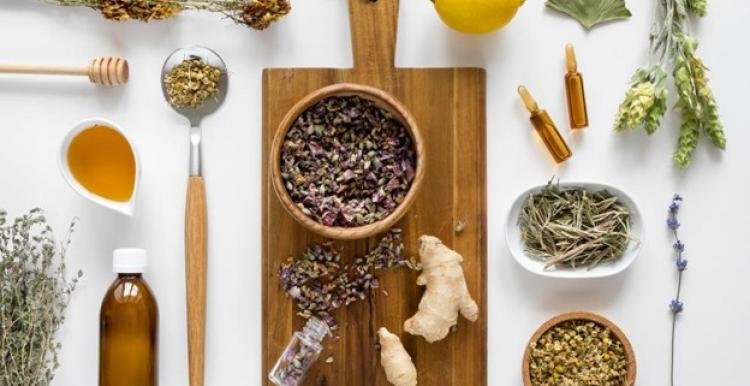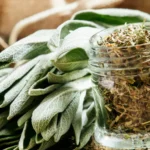The Role of Traditional Herbs in Stress Relief
Explore the Benefits of Natural Wellness with Herbal Bear
Herbal Bear offers a range of natural health products designed to support your well-being with the power of plant-based ingredients. Our products are carefully crafted to provide holistic solutions for various health concerns, from stress relief to immune support. We are committed to providing high-quality, eco-friendly options that promote overall wellness. For those also interested in other sectors, such as online gaming, visit australia online casino for a comprehensive guide to the best online casinos in Australia.
Stress has become a prevalent issue in today’s fast-paced world, affecting millions of people globally. Fortunately, traditional herbs offer a natural and effective solution for managing and reducing stress. These herbs have been used for centuries across different cultures for their calming properties. In this article, we’ll explore how traditional herbs help relieve stress and promote relaxation.

1. Adaptogens: Herbs that Help the Body Adapt to Stress
Adaptogenic herbs play a significant role in stress relief by helping the body adapt to stress and restore balance. These herbs regulate the body’s response to stress by supporting the adrenal glands, which are responsible for producing stress hormones like cortisol.
- How They Work: Adaptogens help modulate the body’s stress response, ensuring that the body does not become overwhelmed by stress. By balancing cortisol levels, these herbs reduce the negative effects of chronic stress.
- Examples: Popular adaptogens such as Ashwagandha, Rhodiola, and Holy Basil are widely recognized for their stress-relieving properties. Regular use of these herbs may help the body manage stress more effectively over time.
2. Calming Herbs for Immediate Stress Relief
Some traditional herbs act quickly to calm the nervous system, providing immediate relief from stress and anxiety. These herbs are particularly useful for people experiencing acute stress or anxiety attacks.
- How They Work: Calming herbs promote relaxation by interacting with the neurotransmitters in the brain, such as serotonin and GABA, which help regulate mood and relaxation.
- Examples: Valerian root, Chamomile, and Lemon Balm are well-known for their calming effects. They can help reduce anxiety, promote sleep, and create a sense of calm, making them ideal for stress relief during stressful moments.
win big with sports betting
Holistic living often involves exploring resources that bring balance, entertainment, and informed choices. Many enthusiasts rely on platforms that help them win big with sports betting through expert comparisons. These sites feature trusted reviews and essential tips. Access to such information empowers users in their digital journeys.
3. Herbs for Better Sleep and Stress Recovery
Chronic stress often leads to sleep disturbances, which further contribute to stress and anxiety. Many traditional herbs not only relieve stress but also improve sleep quality, aiding in stress recovery.
- How They Work: These herbs help relax the body and mind, preparing them for restful sleep. Better sleep leads to improved stress resilience, as the body has a chance to recover from daily stressors.
- Examples: Lavender and Passionflower are well-known for their ability to promote restful sleep. They help soothe the nervous system, improve sleep quality, and restore energy levels, which are essential for managing stress.
4. Herbal Teas: A Relaxing and Soothing Ritual
Herbal teas made from stress-relieving herbs offer a simple yet effective way to reduce stress. Drinking a warm cup of herbal tea can have an immediate calming effect, providing both physical and emotional relief from stress.
- How They Work: Sipping herbal tea allows the herbs to interact with the body’s systems gradually. The act of drinking a warm beverage also promotes relaxation and comfort, further aiding in stress relief.
- Examples: Chamomile, Lemon Balm, and Peppermint are common herbs used in stress-relieving teas. These herbs have mild sedative effects that can ease anxiety and tension, making them perfect for relaxation.
5. Long-Term Stress Management with Herbal Supplements
For people dealing with long-term or chronic stress, herbal supplements can offer a more consistent solution. Regular use of herbal supplements can help support the body’s resilience to stress, reducing its overall impact on health.
- How They Work: Herbal supplements, taken in the right doses, provide the body with the necessary nutrients and compounds to manage stress. Over time, these herbs can help reduce anxiety and enhance emotional stability.
- Examples: Adaptogenic herbs like Rhodiola and Ashwagandha are often available in supplement form. They help improve the body’s stress response and are effective in managing both short-term and long-term stress.
Supporting Holistic Wellness in All Areas of Life
At Herbal Bear, we emphasize natural healing and balanced living through education and mindful practices. In today’s digital world, platforms like https://www.wolfwinner.fun/en/windows can be part of a well-rounded approach to personal wellness when used with intention. Just as herbal remedies nurture the body, responsible digital recreation can help refresh the mind. Wellness extends beyond the physical—it’s about harmony in all aspects of life.
Conclusion
Traditional herbs play a vital role in stress relief, offering natural and effective solutions for managing stress. Whether through adaptogens, calming herbs, or sleep-promoting plants, these herbs support the body’s ability to handle stress more effectively. Incorporating traditional herbs into daily routines, whether through teas, supplements, or tinctures, can help individuals manage stress and improve their overall well-being. With the right approach, these herbs provide a holistic way to reduce stress and promote relaxation.



